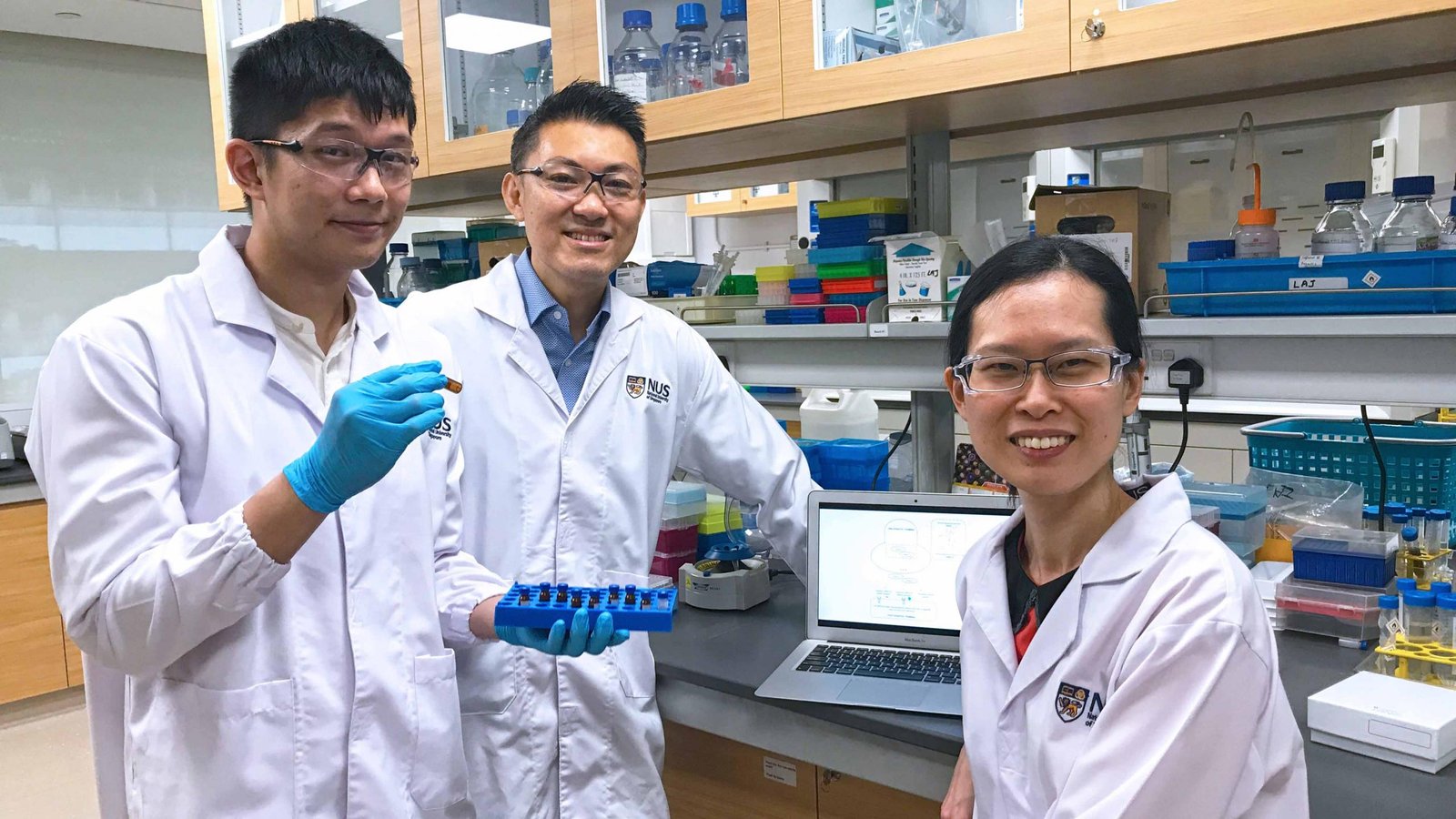
(L-R) Toh Yi Long, Associate Professor Alexandre Chan and Assistant Professor Lau Aik Jiang
Cognitive impairment associated with cancer, also known as “chemobrain”, has gained recognition as a complication of the disease and its treatment, as it can negatively affect the daily lives of cancer patients and survivors.
Given the extent of impact from chemobrain on patients, it will be useful if patients who are at higher risk of developing such symptoms could be pre-emptively identified with the use of a standardised, quantitative biomarker.
With this in mind, a team led by Associate Professor Alexandre Chan from NUS Pharmacy started to investigate levels of biomarkers in relation to chemobrain, to better understand its cause.
The team recently characterised plasma levels of the biomarker dehydroepiandrosterone (DHEA) and its sulfated form (DHEAS) – jointly referred to as DHEA(S) – to be biological determinants of chemobrain. DHEA(S) are neurosteroids that help to regulate brain development, but it was previously unknown whether their levels correlate with cognitive function or are associated with the onset of chemobrain.
The study showed that early-stage breast cancer patients with higher plasma DHEAS levels prior to chemotherapy were found to have a lower risk of developing chemobrain in the specific domains of verbal fluency and mental acuity.
Assoc Prof Chan’s team is now exploring new research frontiers and looking at developing potential therapeutic interventions. These interventions may provide viable options to mitigate post-treatment complications (not limited to chemobrain) that cancer patients are experiencing, with the overall goal to improve quality of life and to help restore normalcy in cancer survivors.




